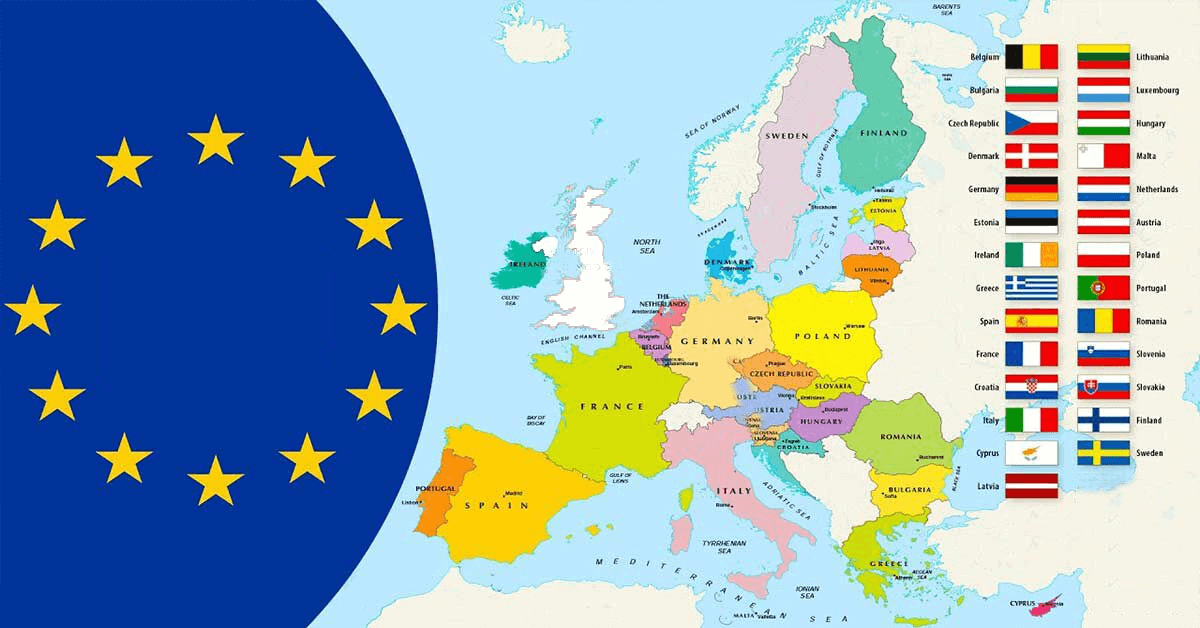ETIAS COUNTRIES
This website is not associated with or owned by the EU. The European Union’s official website is europa.eu.
COUNTRIES IN THE ETIAS PROGRAM
The European Union established the ETIAS programme to examine visitors before they reach Europe. Despite the fact that the EU is made up of 27 sovereign nations, the ETIAS visa waiver is required to enter Schengen member countries.
The Schengen zone includes a total of 26 nations. 22 of them are members of the European Union, while the remaining four are members of the European Free Trade Association. An EU citizen may travel and reside in any other EU country.
All Schengen member states are among the EU nations that require an EU travel authorization.
Andorra is neither a member of the European Union or the Schengen Area. Nonetheless, Andorrans are free from the requirement to carry an ETIAS travel authorization when travelling through the Schengen Area. Romania, Bulgaria, Croatia, and Cyprus are European Union members but do not yet participate in the Schengen Agreement. ETIAS, on the other hand, will be necessary to travel to these nations.
Please see the map below for a comprehensive list of nations that will need people to get an ETIAS before visiting their country.

COUNTRIES THAT WILL REQUIRE ETIAS:
The following nations will require a valid ETIAS visa waiver upon entry into their territory:
Non-Schengen EU States
Non-EU Member States:
Micro-States de facto part of Schengen Area:
- EU Schengen
- Non-EU Schengen States
- Non-Schengen EU States
EUROPEAN COUNTRIES HAVE NOT YET SIGNED THE SCHENGEN AGREEMENT:
- Bulgaria
- Croatia
- Cyprus
- Romania
Once adopted, eligible third-country nationals will need a valid ETIAS to travel to each of these four Schengen candidate nations.
Non-Schengen EU nations such as Ieland, on the other hand, have its own policies regarding foreign entrance access. Go to the Schengen Visa website to discover more about each nation and their criteria for Schengen Visa entry.
EUROPEAN UNION
The European Union has expanded at an exponential rate throughout the years. Only Belgium, Germany, France, Italy, Luxembourg, and the Netherlands participated in economic cooperation in 1951. The EU now consists of 27 nations. Croatia was the most recent country to join in 2013.
The euro (EUR) is the currency of the Eurozone, which consists of 19 EU member nations.
EUROPEAN FREE TRADE ASSOCIATION
Iceland, Lichtenstein, Norway, and Switzerland comprise the European Free Trade Association, or EFTA. This organisation was formed to promote free trade and economic cooperation among them, as well as among nations in Europe and throughout the world.
SCHENGEN ZONE AND BORDER CONTROL
Five nations signed the Schengen Agreement for the first time in 1985. The Schengen zone is made up of 26 nations that agree to remove internal borders with other members. The pact permits free movement of people, commodities, services, and capital throughout Europe.
To travel within the Schengen Area, European nationals do not require a visa or a passport.
EUROPEAN UNION SINGLE MARKET
The European Union’s single market (also known as the internal market) provides for the free movement of goods, services, people, and money. Consider everything happening within the borders of a single country to better comprehend the notion of free movement. This is the general idea of the EU’s single market.
Furthermore, European residents have the right to travel, study, live, work, and retire in any EU member state.
The abolition of internal EU borders is also part of the internal market system, which was made feasible by the reduction of several technological, legal, and regulatory impediments. As a result, new opportunities for local company development on a global scale, decreased manufacturing costs, and increased items and consumer choice emerged.
The following are some specific instances of European Union benefits:
- National and international prices for calls in Europe have lowered significantly, compared to the market 10 years ago
- New routes have opened up
- Internal European flight fares have significantly fallen
- Many companies and households can now choose their gas and electricity providers
